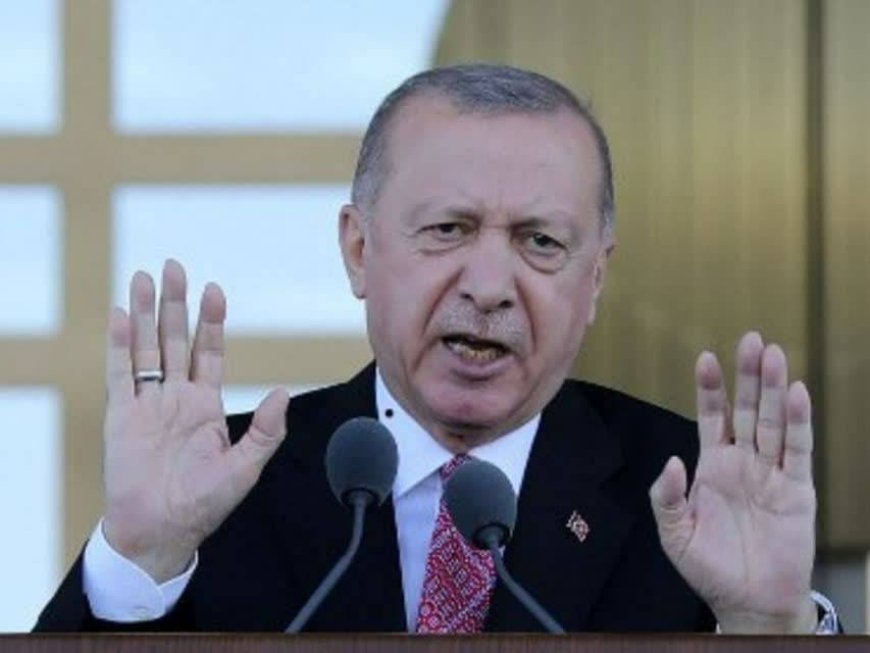The Political Upheaval in Turkey: A Reflection on the Recent Municipal Elections

The recent local and regional elections held in Turkey on March 31 marked a significant turning point in the country's political landscape. These elections were pivotal in determining the leadership of over 80 cities and villages, including mayors, heads of municipalities, and village councils. In a surprising twist, the opposition Republican People's Party (CHP) managed to outpace the ruling Justice and Development Party (AKP) for the first time in two decades, dealing President Recep Tayyip Erdoğan his most substantial political setback to date.
President Erdoğan, who famously declared that winning Istanbul equates to winning Turkey, now faces formidable challenges following this electoral defeat. The outcome of these elections holds immense significance, as Erdoğan had set reclaiming Istanbul and Ankara as crucial goals for the AKP. However, the election results painted a starkly different picture, with Erdoğan and his party ceding control of key urban centers, including Istanbul, to the opposition CHP and emerging Islamist parties.
The CHP secured 37.77% of the votes, edging out the Justice and Development Party, which garnered 35.49% of the votes, according to the Anatolia state news agency. These results not only signify a shift in political dynamics but also hint at broader social and governance challenges that Turkey may face in the near future.
The aftermath of the elections saw tensions escalate in some Kurdish regions, particularly following the disqualification of Abdullah Zeydan, a Kurdish party candidate who won the mayoral election in one Turkish city. The decision to invalidate Zeydan victory, citing past convictions and alleged ties to the Kurdistan Workers' Party (PKK), sparked protests and unrest in several Turkish cities. This move echoes previous instances where the central government intervened by appointing replacements for elected officials post-election.
In the southeastern city of Diyarbakir, clashes erupted, resulting in casualties and injuries, underscoring the deep-seated divisions within Turkish society. Similar confrontations unfolded in Van, where protests erupted over the removal of the elected mayor and the subsequent appointment of a replacement. These incidents triggered a chain reaction of demonstrations and clashes in cities like Bitlis, İstanbul, Mersin, and Hatay, leading to the imposition of curfews and heightened security measures.
The strained relationship between the Turkish central government and the Kurdish population, dating back to the years following negotiations with Öcalan in 2012 and 2013, has further deteriorated. The Kurds have long faced challenges in maintaining municipal control, often seeing their elected positions revoked by the AKP. Instances like the recent dispute in Şanlıurfa, where Kurdish candidates had their victories invalidated, highlight the ongoing tensions surrounding municipal governance in Turkey.
The recurring cycle of power struggles over municipal control between the ruling AKP and Kurdish-affiliated parties, sometimes with the backing of the ultra-nationalist parties like MHP, continues to fuel unrest and discontent. The repercussions of these political maneuvers reverberate throughout Turkish society, underscoring the enduring complexities of governance and identity in the country.
The recent municipal elections in Turkey have unveiled a significant shift in the country's political landscape, with the opposition CHP securing key victories and dealing a blow to President Erdoğan's ruling AKP. The aftermath of the elections has exposed deep-seated divisions within Turkish society, particularly evident in the tensions and clashes that have erupted in Kurdish regions. These events underscore the ongoing struggles for municipal control and the complexities of governance and identity in Turkey. As the country navigates through this period of political upheaval, it is crucial to reflect on the broader social and governance challenges that lie ahead, emphasizing the need for dialogue, understanding, and inclusivity to foster a more united and stable future for all citizens.













































